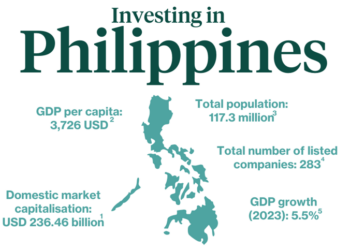No products in the basket.
The Philippines has recently passed a landmark legislation that opens up its public services sector to 100 percent foreign investment.
The amended Public Service Act, which was signed into law by President Rodrigo Duterte in March 2023, aims to attract more foreign capital and technology to improve the quality and efficiency of public services in the country.
Public services are activities that serve the common good of the people, such as transportation, communication, water supply, electricity, and postal services. Under the previous law, public services were considered as public utilities, which were subject to constitutional restrictions on foreign ownership. Only Filipino citizens or corporations with at least 60 percent Filipino equity could operate public utilities.
The new law clarifies the distinction between public services and public utilities, and limits the latter to natural monopolies that are essential for national security and public welfare. These include electricity transmission and distribution, water pipeline distribution and sewerage, and public utility vehicles. Foreign ownership in these sectors remains capped at 40 percent.
However, other public services that are not natural monopolies or critical infrastructure are now open to full foreign ownership. These include railways, airports, expressways, telecommunications, airlines, shipping, and irrigation. The law also provides safeguards to protect national security and consumer rights, such as giving the President the power to suspend or prohibit foreign investments in public services upon recommendation of a competent authority.
The amended Public Service Act is expected to boost the Philippines’ competitiveness and attractiveness as an investment destination in Southeast Asia. It will also help address the country’s infrastructure gap and enhance the delivery of public services to the Filipino people.
Discover more from Thailand Business News
Subscribe to get the latest posts sent to your email.














